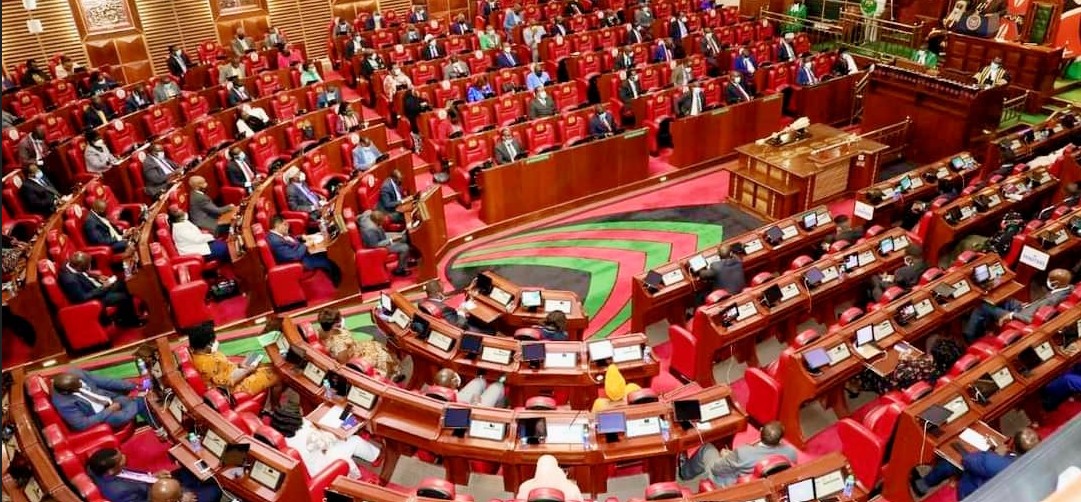Rwanda, Singapore launch AI playbook to enhance technological sustainability for small states
As AI technology evolves, the playbook will remain a living document, continuously updated with new practices and lessons learned
Rwanda and Singapore have jointly launched the Artificial Intelligence (AI) Playbook for Small States which will cover best practices from members of the Digital Forum of Small States (Digital FOSS) on implementing AI strategies and policies in their countries.
The two countries on September 22 partnered in leveraging the use of information technology to develop strategies for technological sustainability.
More To Read
- DRC and Rwanda draft agreement to boost trade and investment
- Kenya, Rwanda expand defence cooperation to include technology and innovation
- Google Maps enters AI era with realtime lane guidance feature
- OpenAI denies ban on legal and medical topics in ChatGPT
- Creativity is good for the brain and might even slow down its ageing - study
- Grammarly rebrands as Superhuman in major AI productivity shift
The move by Kigali, which has been keen on exploiting the use of technology to boost its economic power was announced by Singapore’s Minister for Digital Development and Information, Josephine Teo, during the United Nations (UN) Summit of the Future (SOTF) in New York City.
The partnership was described as a key step in shaping the global AI debate.
The Playbook
The Playbook was a brainchild of Singapore’s Infocomm Media Development Authority (IMDA) and Rwanda’s Ministry of ICT and Innovation.
One of the key reasons for the partnership is emanating from the fact that small countries face specific challenges in adopting AI, including a lack of resources, access to talent, and the complexity of developing governance frameworks.
As the organiser of the Digital FOSS, Singapore was at the forefront of gathering abilities for collecting input from fellow small countries, identifying common bottlenecks, and picking up successful solutions, according to Minister Teo.
The resulting playbook is made to help small countries defeat hurdles and realise the changing power of AI.
The AI Playbook has insights from Digital FOSS members all over the world, offering a comprehensive view of how small countries have leveraged AI use.
According to the new technology, the document also addresses AI development, governance, safety, and societal impact, ensuring that small states can learn from one another’s experiences in building AI strategies that meet their unique needs.
As AI technology evolves, the playbook will remain a living document, continuously updated with new practices and lessons learned, officials said in New York.
Launched in 2022, the Digital FOSS offers a platform for small states to collaborate on digital policy and technology challenges.
It supports global initiatives like the United Nations’ Sustainable Development Goals (SDGs) and the Global Digital Compact, aiming to create inclusive digital frameworks. The AI Playbook aligns with these efforts, helping small states leverage AI for economic growth and societal advancement.
Why it matters
With AI playing an increasingly crucial role in global development, experts said the launch of the AI Playbook signals a new era of cooperation among small states.
By sharing resources, knowledge, and experiences, small states can navigate the challenges of AI adoption and governance more effectively, ensuring that the technology serves as a force for positive change.
Through initiatives like the AI Playbook, Singapore, Rwanda, and the Digital FOSS community are paving the way for small states to harness AI’s transformative potential, driving innovation while contributing to a more inclusive and sustainable digital future.
In Rwanda, the national AI policy was adopted in 2023, with the country looking to leverage AI to power economic growth, improve quality of life, and position Rwanda as a global innovator for responsible and inclusive AI.
At the launch, officials said that AI can boost productivity and improve service delivery across all sectors of the economy, with an estimated $589 million potential for Rwanda.
The Rwanda Minister for ICT, Paula Ingabire said that the policy is anchored around identifying key sectors with the highest economic impact, which include agriculture, public administration, education, health, manufacturing, and financial services.
Top Stories Today











































